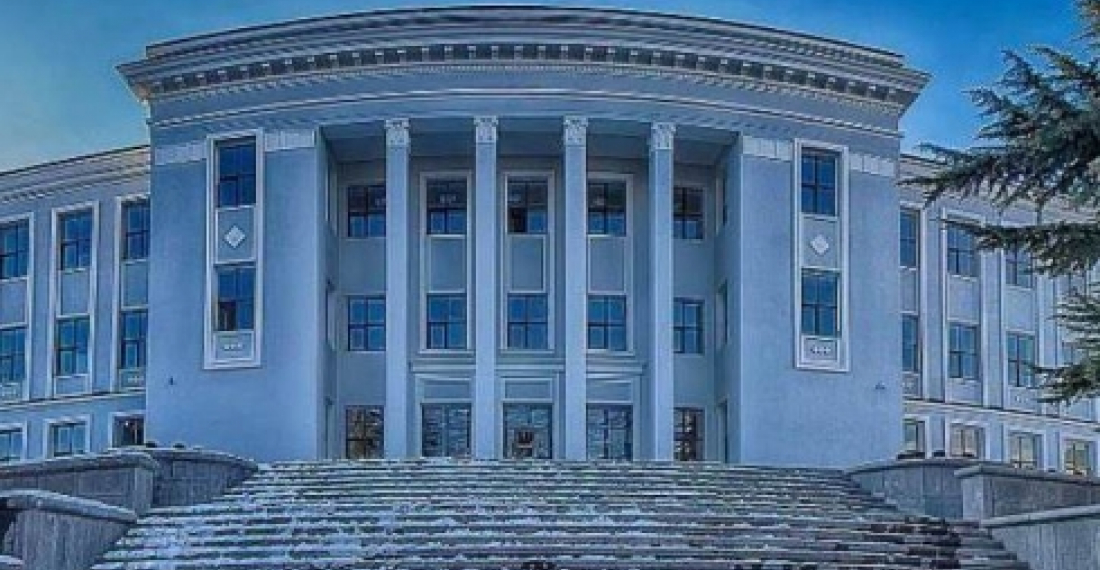Calls by the South Ossetian leadership for total integration with Russia have so far been snubbed by Moscow, but a far-reaching treaty is expected to be signed later this month.
By Joseph Alexander Smith
South Ossetia has submitted a revised draft of a Treaty of Alliance and Integration which it hopes to sign with Moscow, raising fears in Tbilisi of a Crimea-style 'annexation' of the South Caucasus territory. The version submitted by Tskhinvali on January 31st effectively hands over South Ossetian defence and border control to the Russian Federation, as well as removing customs and immigration checkpoints at the border with Russia.
The content of the final draft, due to be signed by the two sides in mid-February according to South Ossetia's RES news service, has been the topic of much speculation in recent weeks. South Ossetia's President had originally announced plans for full 'integration' as a federal subject of the Russian Federation, and parliament speaker Anton Bibilov of the ruling United Ossetia party has called for a referendum on full political union with Russia.
The Russian side, meanwhile, presented an initial draft based on a similar treaty signed with break-away Abkhazia in November. While integrating some social services and creating joint command structures in law enforcement and the military, the Abkhaz treaty does not make Abkhazia formally part of the Russian Federation.
According to the Moscow Times, the latest draft of the treaty currently under consideration by Moscow provides for a much deeper level of 'integration' than the treaty signed by Sukhumi. Under the latest draft, South Ossetia's armed forces and other security agencies will be integrated into the federal armed forces and security agencies of the Russian Federation. Border checkpoints and customs controls between Russia and South Ossetia are to be abolished, and Russia will take full control of border control duties on the South Ossetia-Georgia border.
Public sector wages and income support in South Ossetia will also be equalized with those in the North Caucasus Federal District through extra funding from Moscow, and in education, the South Ossetian school curriculum will be equalized with the Russian curriculum.
The planned treaty has raised fears in Tbilisi of a 'Crimea-style' annexation of South Ossetia by the Russian Federation, with Georgia's Foreign Minister Tamar Beruchashvili explicitly drawing a parallel between developments in South Ossetia and events in Ukraine.
In an interview with Radio Free Europe/Radio Liberty, Beruchashvili said that "the next move is on [South] Ossetia; there are signals that the Crimea-like scenario could be repeated and South Ossetia could be annexed." She also suggested that South Ossetia could hold a referendum as Crimea did in March that would be used to show that the local population wants to join Russia. "That can be well organized, it's not a problem for Russia," she said.
The Foreign Minister's concerns were echoed in statements by NATO's Secretary General , Jens Stoltenberg, who said that Russia's treaty with breakaway Abkhazia on "alliance and strategic partnership" and planned new treaty with breakaway South Ossetia "are part of a disturbing pattern of destabilizing Russian behavior in its neighbourhood."
While Georgia's international partners are likely to repeat condemnation of the treaty when it is eventually signed, it's unclear whether any stronger steps will be taken. However, the signing of the treaty is likely to cause big waves in the increasingly choppy seas of Georgia's internal politics. Georgia's ruling Georgian Dream coalition faced ministerial defections in November last year, as well as a substantial opposition demonstration in the capital Tbilisi which denounced the signing of Abkhazia's treaty with Russia and at which key opposition figures labelled the current government "collaborationist". This year has also seen a substantial demonstration by another opposition party, the Alliance of Patriots of Georgia, which criticized the government's handling of several high-profile criminal cases. It's possible that events in Tskhinvali could further erode support for the ruling coalition and increase the chance of early parliamentary elections currently scheduled for 2016.
source: Joseph Alexander Smith filed this report from Tbilisi for commonspace.eu
photo: The Government Building in the South Ossetian Capital Tskhinvali (picture courtesy of the Embassy of South Ossetia in Moscow).







